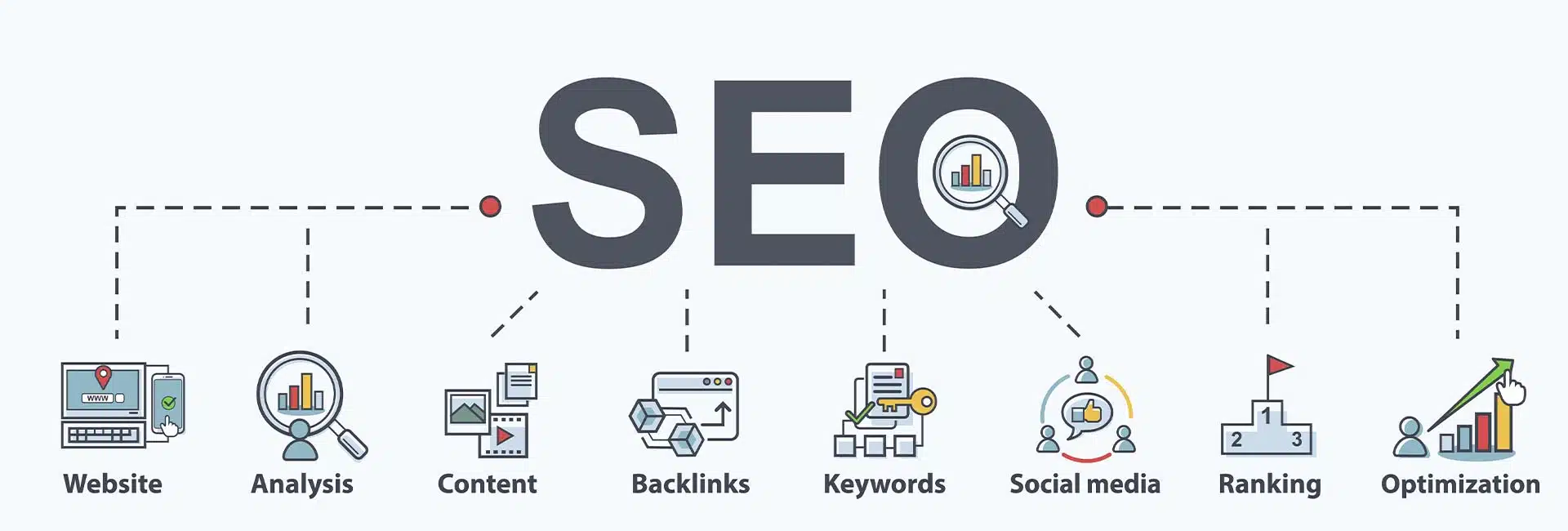From Zero to Hero: How to Increase Your WordPress Website Visibility with SEO Optimization Techniques
As a website owner, you will want your WordPress site to rank high in search engines such as Google. But how will you achieve such a thing? Well, the answer is simple: by implementing SEO optimization techniques. In this article, I’ll guide you through the basics of SEO, its importance for WordPress websites, and techniques to increase your website’s visibility on search engines. Let’s go then!
1. Understanding the Basics of SEO – A Beginner’s Guide
Search Engine Optimization (SEO) is the process of optimizing your website to rank at the top of search engines like Google, Bing and Yahoo. SEO involves making changes to your website’s content, structure and design, as well as off-page factors such as links from other sites (backlinks) and social media engagement. One of the most critical aspects of SEO is keyword research. Keywords are the terms and phrases that people use to search for information on the Internet. By targeting the right keywords, you will attract the right audience to your website. Another important aspect of SEO is on-page optimization, which involves optimizing individual pages on your website to rank at the top of search engines. This technique includes optimizing your content, images, titles, meta descriptions and even the code itself.2. Importance of SEO for WordPress Websites
SEO is essential for WordPress websites for two main reasons. One, because it helps your website rank higher in search engines, which means more visibility and traffic to your site, ranking higher than your competition. The other main reason is to provide a better user experience for your website, making the site faster to load and simpler to use, allowing visitors to find what they are looking for more easily.3. SEO Techniques for WordPress Websites
There are several SEO techniques that you can use to optimize your WordPress website. Here are some of the most effective ones:3.1. On-Page SEO Optimization for WordPress
On-page optimization involves optimizing individual pages on your website to rank at the top of search engines.- Keyword research: Use keyword research tools to find the right keywords for your website.
- Content Optimization: Optimize your content by including your keywords in your headers, subtitles and throughout your content.
- Title tags and meta descriptions: Use descriptive and relevant title tags and meta descriptions that include your keywords.
- Image Optimization: Optimize your images using descriptive filenames and alt tags that include your keywords.
3.2. Off-page SEO optimization for WordPress
Off-page optimization involves optimizing factors outside of your website that can influence search engine rankings.- Backlinks: Build high-quality backlinks to your website from reputable sources.
- Social Media Engagement: Engage with your audience on social media platforms like Facebook, Twitter, and LinkedIn to increase your website’s visibility.
- Local SEO: Optimize your website for local search by including your business name, address, and phone number on your website.
4. Importance of website loading speed for SEO
Website loading speed is a crucial factor in SEO. Slow loading sites suffer from their ranking in engines and offer a poor navigability experience for the user. A fast loading website undoubtedly improves the overall performance and user experience of your website.4.1. Tips to improve website loading speed
Here are some tips to improve the loading speed of your website:- Optimize images: Compress and optimize your images to reduce their file size.
- Minimize HTTP requests: Reduce the number of HTTP requests by combining CSS and JS files.
- Use cache: Use caching plugins to store frequently accessed data.
- Reduce server response time: Choose a reliable hosting provider with fast server response times.
4.1. Tools to measure website loading speed
There are several tools you can use to measure the loading speed of your website. The best known are:- Google PageSpeed Insights: A free tool from Google that analyzes the performance of your website.
- GTmetrix: A website performance tool that provides recommendations to improve your website speed.
- Pingdom: A speed test tool for your website that provides detailed performance reports.
5. Google Ranking – A Beginner’s Guide
Ranking on Google is the ultimate goal of SEO optimization. Here are some tips for ranking higher on Google:- Provide high-quality content: Creating high-quality, informative, and engaging content is key to ranking high on Google.
- Using long tail keywords: “Long tail” keywords are longer, more specific phrases that people use to find what they’re looking for on the Internet.
- High Quality Backlinks: Build high quality backlinks from reputable sources to improve your website’s authority and rankings.
- Keep up to date with Google algorithm updates: Google’s algorithm is constantly changing, so it’s essential to stay up to date with the latest updates and make changes to your website in compliance.
6. SEO Plugins for WordPress Websites
WordPress offers several SEO plugins that can help you optimize your website for search engines. Here are some of the most popular ones:- Yoast SEO: A comprehensive SEO plugin that offers on-page optimization, XML sitemaps, and more.
- All In One SEO: An easy-to-use SEO plugin that offers on-page optimization, XML sitemaps, and social media integration.
- SEOPress: A powerful SEO plugin that offers on-page optimization, XML sitemaps, and schema markup.
7. Common SEO mistakes to avoid
Here are some common SEO mistakes to avoid:- Keyword Spam: Overusing your target keywords can hurt your website rankings and user experience.
- Not optimizing for mobile: With more and more people using mobile devices to access the Internet, it is essential to optimize your website for mobile.
- Ignore local SEO: If you are a local business, it is important to optimize your website for local search.
- Don’t do analytics: Analytics tools like Google Analytics can help you track your website’s performance and make data-driven decisions.
8. Conclusion
SEO optimization is essential to increase the visibility of your WordPress website in search engines like Google. By implementing these techniques, you can improve your website’s ranking, user experience, and stay ahead of your competitors. Remember to stay up to date with the latest SEO trends and make changes to your website accordingly. With these tips, you can go from zero to hero and increase your WordPress website visibility with SEO optimization techniques.Do you need to increase your website’s visibility?
More
Clients?
Hi, my name is Luís Horta, and I'm determined to grow your business. My question is: Are You Ready?

About Luís Horta
He has been a teacher in Portuguese Public Education for over 25 years. So far, he has helped create and develop more than 700 businesses in different areas in his career.
Read More
more articles of interest to you






